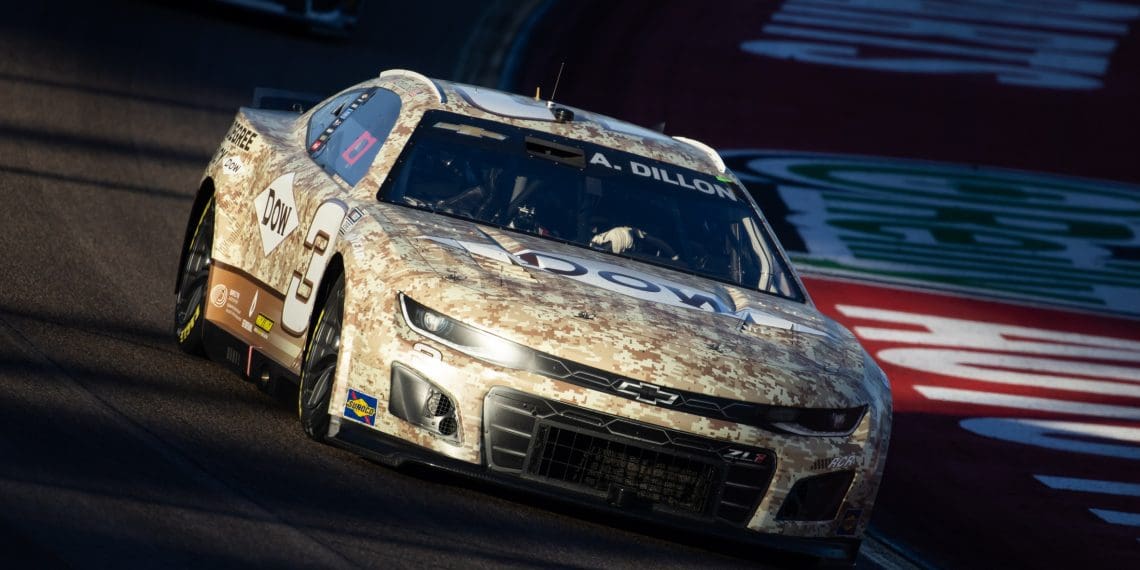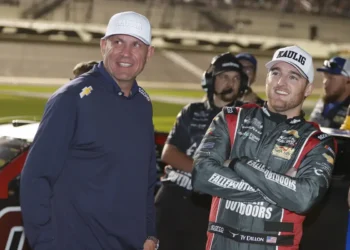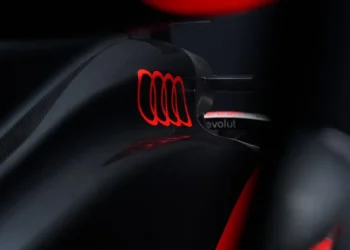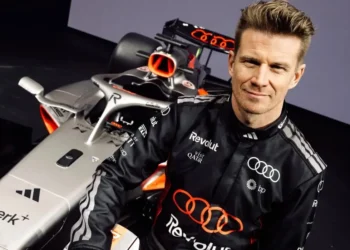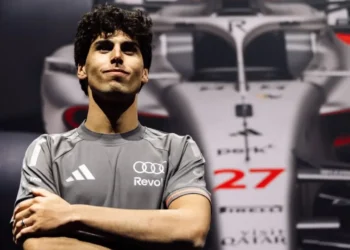For years, drafting alliances have been a staple of superspeedway racing, with drivers from the same manufacturer working together to gain an aerodynamic edge. But NASCAR’s new crackdown on race manipulation has completely reshaped the competitive landscape—and Ben Rhodes learned that the hard way at the Fresh From Florida 250.
When the defending Truck Series champion found himself in desperate need of a drafting partner, he got nothing but air—a direct result of NASCAR’s new, no-tolerance stance on collusion.
The message? You’re on your own.
How Martinsville Changed NASCAR’s Rulebook
This seismic shift stems from last season’s race-manipulation scandal at Martinsville, where Ross Chastain and Austin Dillon collaborated to support William Byron in what NASCAR deemed an orchestrated alliance.
The penalty? $100,000 fines and a 50-point deduction.
That sent shockwaves through the garage. No longer would NASCAR turn a blind eye to manufacturers or teams influencing race outcomes. The rulebook was rewritten, and the 2025 Daytona 500 was the first real test.
The result? Silence on the track.
Rhodes Left Hanging: No Friends, No Help, No Chance
At Daytona and Talladega, a strong drafting partner can be the difference between winning and fading into the pack.
Ben Rhodes entered the Florida 250 as the polesitter and won Stage 1, proving his speed was there. But as the laps wound down, he needed help.
It never came.
Instead of a manufacturer-backed push, Rhodes found himself completely isolated. Without the aerodynamic boost he needed, he plummeted down the order to finish P20.
His frustration was clear.
“It all came down to the last 20 seconds of the race,” Rhodes said. “Going into Turn 3, on the backstretch, I was just getting pushed extremely hard… I don’t want to make any judgments… it’s just physics.”
Even his spotter, Frankie Kimmel, couldn’t help but joke about the lack of teamwork.
“Next time we race on Valentine’s Day, I’m gonna make some hearts, Frank, for you to hand out.”
No alliances. No teamwork. Just survival.
The Fear Factor: Why No One Took the Risk
So why did no one step up to help Rhodes?
Simple: The consequences are too steep.
NASCAR has made it clear that even manufacturers themselves can be punished if race manipulation is suspected.
The new penalties include:
- Loss of manufacturer points
- Reduction in wind tunnel testing hours
- Restrictions on vehicle development
The fear of disqualification has forced teams to completely rethink their approach to superspeedway racing.
Drivers now can’t afford to be seen working together, even if it means sacrificing a better finish.
And if this trend holds throughout the season, Daytona and Talladega could become even more chaotic, with no clear alliances on track.
The Future of Superspeedway Racing: A New Era of Isolation?
Rhodes’ Daytona experience was the first clear sign that the NASCAR landscape has changed.
Where once drivers knew they could rely on manufacturer teammates, now, they’re being forced to fight for every inch alone.
And that raises a huge question for the 2025 season:
Is NASCAR creating a more competitive playing field—or is it fundamentally changing superspeedway racing forever?
If Daytona was any indication, the pack-racing alliances that once defined these high-speed battles may be a thing of the past.
And for drivers like Ben Rhodes, that could make winning these races even harder than ever before.

